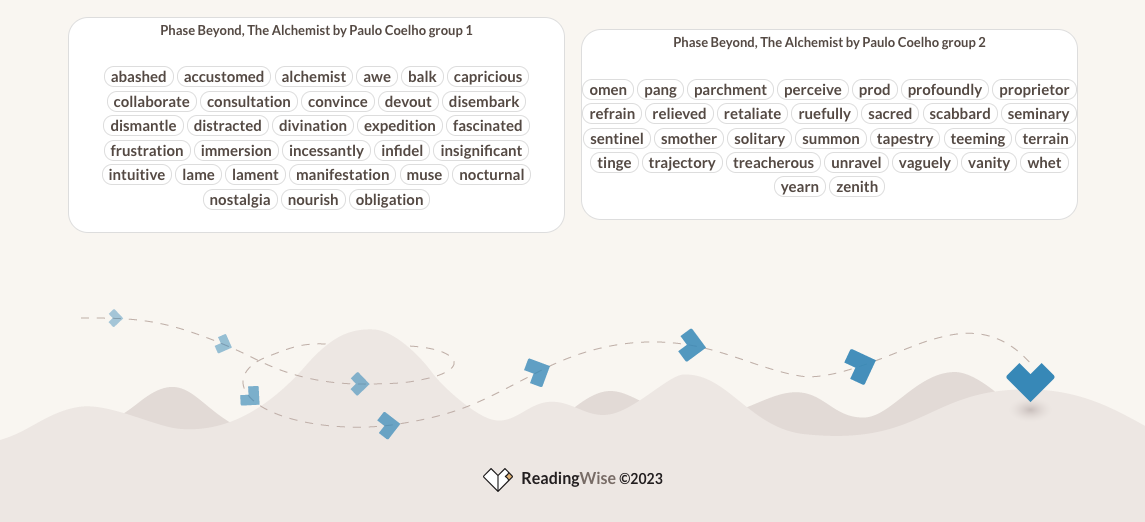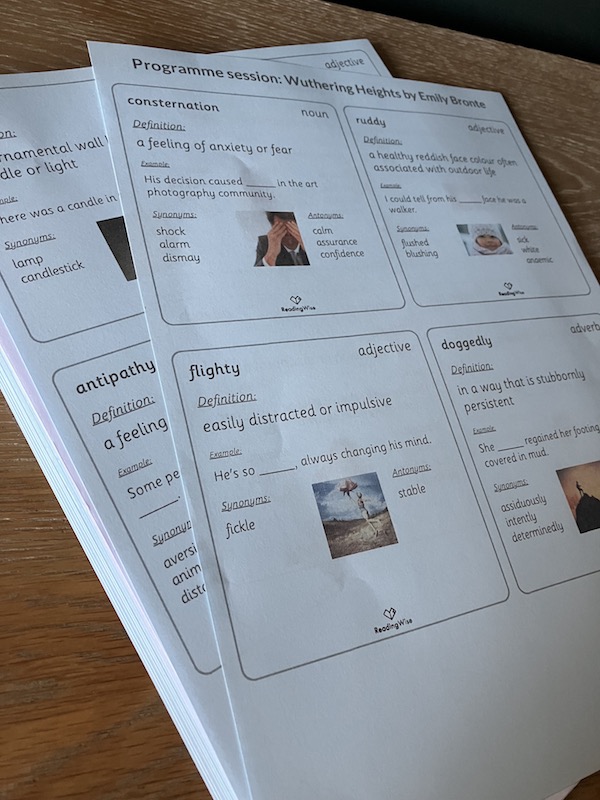
The Alchemist by Paulo Coelho - Vocabulary
"The Alchemist" is a philosophical and inspirational novel written by Brazilian author Paulo Coelho. Originally published in Portuguese in 1988, it has since become a worldwide bestseller and is celebrated for its allegorical and spiritual themes.
The story revolves around Santiago, a shepherd boy who has a recurring dream in which a child tells him he must search out treasure in Egypt, at the foot of the pyramids. Santiago embarks on this journey to fulfil his ‘Personal Legend’, a concept the book explores extensively. Throughout his travels, Santiago encounters various individuals who guide him, including a fortune-teller, a mystical king, and an English alchemist.
The novel explores the themes of destiny, purpose, and self-discovery – that life itself is a journey. Santiago's quest takes him through both physical and spiritual landscapes, and he learns valuable lessons about the importance of following one's heart, listening to omens, and understanding the interconnectedness of all things. The story ends with Santiago realising that the treasure he sought was not in Egypt, but right where he dreamt about it. His ‘treasure’ was not simply the uncovering of a tangible wealth, but the enlightenment and self-awareness that he gained on his adventure.
Language in "The Alchemist"
Paulo Coelho's use of language in "The Alchemist" is straightforward, yet poetic and deeply spiritual. The narrative is often lyrical, evoking a sense of timeless wisdom and mysticism, even though it is also modern by nature. Coelho uses metaphors and fable-like elements, making the story both accessible and thought-provoking. For example, when Santiago wonders why his journey took him all the way to Africa, when the treasure was in his home all along, the wind answers him with “If I had told you, you wouldn’t have seen the pyramids. They’re beautiful, aren’t they?”
The idea of a ‘Personal Legend’ is a central concept of the book. Coelho’s use of simple but profound language conveys the importance of pursuing one's dreams and fulfilling one's destiny. This simplicity and clarity of language make the novel universally appealing and easily relatable, allowing readers to connect with the story on a personal level. It is probably best suited to those in KS3 and above, although there’s no specific adult content to make it unsuitable for younger readers also. Rather, it is the ability to grasp the philosophical aspects that could be missing in younger readers, and that could hamper their enjoyment somewhat.
Moreover, the language serves to amplify the novel's themes of spirituality and interconnectedness. Coelho weaves spiritual and philosophical insights into the narrative seamlessly, encouraging readers to reflect on their own life paths and desires. He uses sheep as a symbol for those who aren’t concerned with seeking their Personal Legend, describing them as people who “never have to make any decisions… The only things that concerned the sheep were food and water”.
Coelho's book encourages readers of all ages to engage in self-reflection and personal growth, and promotes the contemplation of aspirations, desires, and beliefs. The novel's language is an integral part of its transformative power and the poetic and philosophical language elements are key to its impact. “If someone isn't what others want them to be, the others become angry. Everyone seems to have a clear idea of how other people should lead their lives, but none about his or her own.” It is a timeless classic in the realm of spiritual and inspirational literature, and we hope we have highlighted some of this in our word lists here!
You can also access an editable list here.
Vocabulary Cards
As well as word lists, we also offer free use of our vocabulary cards, which can be downloaded as a PDF for use in class. Complete a short form and we will email you the cards straight away.
Vocabulary cards include:

- Definition;
- Word type;
- Synonyms and antonyms;
- Example sentence;
- Image.
Check out our weekly lists every Wednesday! Click here for last week's curation...
Find out more about our Vocab module. It's simple, online, and each learner has their own username and password. You (the teacher) allocate the word list you'd like your class to work on... and away they go!









